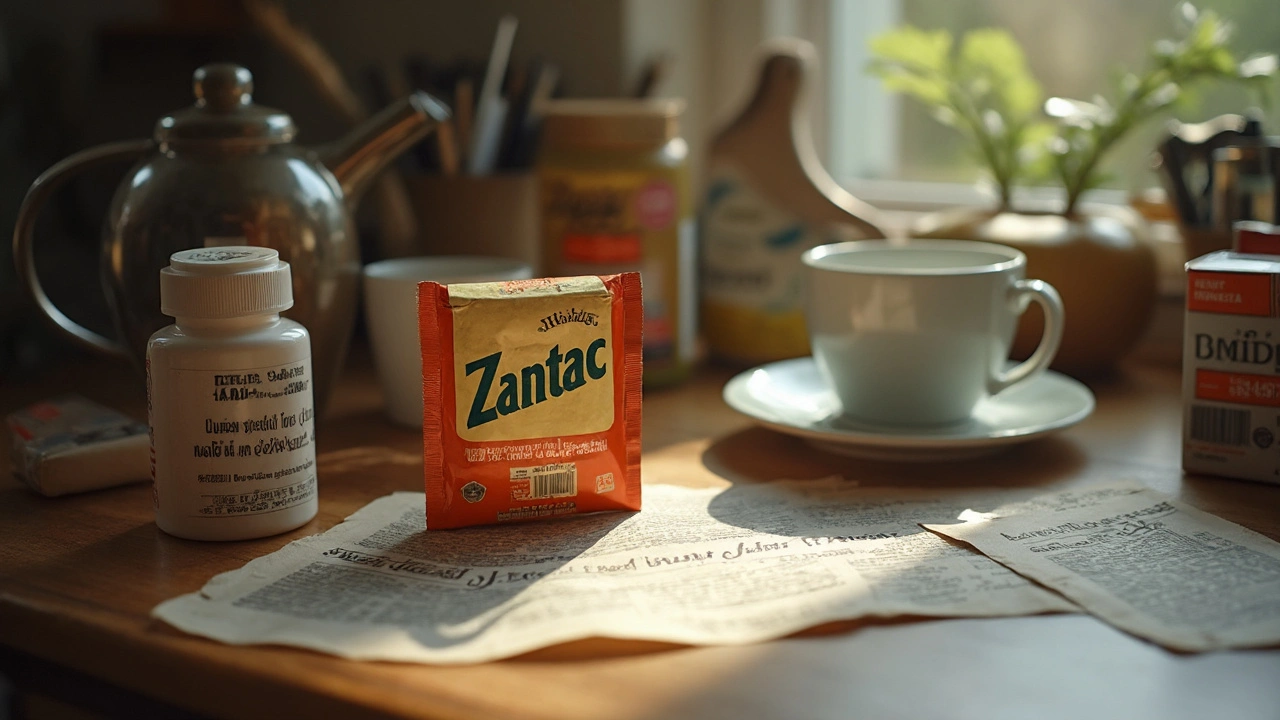Zantac Alternatives: What Works Best for Heartburn?
If you’ve been using Zantac (ranitidine) and heard it’s off the market, you’re not alone. Many people need a new plan to calm that burning feeling in their chest. The good news? There are several options that can replace Zantac without compromising safety.
Prescription swaps for Zantac
Doctors often suggest other H2 blockers when Zantac is unavailable. Pepcid (famotidine) is the most common pick. It lowers stomach acid just like Zantac but stays on the market and has a clean safety record. Typical doses are 20 mg twice daily or 40 mg once a day, depending on how bad your symptoms are.
Cimetidine (Tagamet) is another option. It works similarly but can interact with certain meds, so let your pharmacist check for clashes. The usual dose is 300 mg twice daily.
If you need something stronger, proton pump inhibitors (PPIs) like omeprazole (Prilosec) or esomeprazole (Nexium) can be used. They block acid production more completely and are great for nighttime heartburn. A typical dose is 20 mg once a day before breakfast.
Always talk to your doctor before switching. They’ll look at your medical history, other meds you take, and decide which swap fits best.
OTC & natural ways to calm acid
Not everyone wants another prescription. Over‑the‑counter (OTC) options are easy to grab at the pharmacy. Pepcid AC is the same famotidine you get by prescription, just in a lower dose (10 mg or 20 mg). It’s safe for most adults and works within an hour.
Antacids like Tums, Maalox, or Rolaids give quick relief by neutralizing stomach acid. They’re perfect if you need a short‑term fix after a big meal.
For a natural route, try alkaline water (pH 8–9) or a splash of apple cider vinegar diluted in water before meals. Some people find that the tiny amount of acid tricks the stomach into producing less acid overall.
Don’t underestimate lifestyle tweaks. Eating smaller portions, avoiding spicy or fatty foods, and not lying down for two hours after eating can cut heartburn episodes dramatically. Raising the head of your bed by 6‑8 inches helps nighttime reflux without any pills.
If you’re looking for a supplement, deglycyrrhizinated licorice (DGL) chewable tablets have shown modest benefit in soothing the esophagus. Take them on an empty stomach and follow the package directions.
Remember, what works for one person may not work for another. Keep a simple diary of foods, meds, and symptoms; it helps you spot patterns quickly.
Bottom line: You have plenty of Zantac alternatives, from prescription swaps like Pepcid to easy OTC choices and lifestyle tricks. Talk to your healthcare provider, try the options that fit your routine, and say goodbye to that burning feeling.
Zantac, once a go-to remedy for heartburn, took a sharp turn after safety concerns caused a worldwide recall. This article unpacks Zantac’s history, science, risks, why it disappeared, and what people should use instead—along with tips to manage heartburn safely and avoid hidden medication dangers.
May, 22 2025

